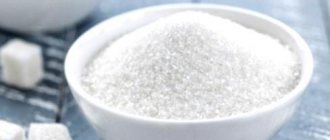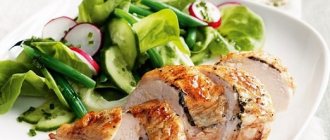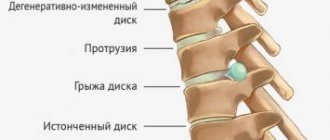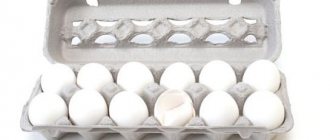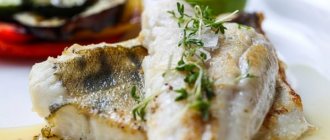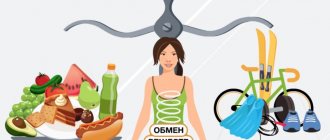Are fatty and sugary foods the culprits of excess weight?
If a person eats a lot of fatty and sweet foods, there is, of course, nothing good in this, since such food is not healthy.
But, for sure, not all people who eat such food have 10-20-30 or more kilograms of excess weight.
What's the matter?
Firstly , it’s a matter of the total calorie content of food. If you eat 3 pies and 3 cakes a day and that’s all your food for the day, and at the same time you lead an active lifestyle - you walk a lot and don’t sit still, in principle, you will get your usual daily calorie intake and you won’t gain weight. Only for the health of the gastrointestinal tract and blood vessels, such a diet is very harmful. But that's another conversation.
Second point. Now let’s imagine that you give up all fatty and sweet foods, lead a sedentary lifestyle (work in an office), but at the same time eat a lot of everything else (meat, fruits, cereals, healthy sweets for dessert), and you end up with more than 2000 calories. per day, you will still gain weight by eating healthy foods. Or, if you eat more moderately, the weight will simply stay the same.
Why does this happen? After all, you have given up what causes obesity. In fact, no food by itself causes obesity. The thing is that a calorie deficit has not yet been created, and the body makes do with the food that you take without using the reserves of the body itself. Why should he lose weight? Chicken and pasta made from durum wheat by themselves do not contribute to weight loss. These are just healthy foods that also contain calories. The only advantage of this approach is that it is difficult to overeat healthy food, and such food is healthier for the body. It's easy and simple to eat 2 hamburgers with 800 calories each and difficult to eat 400 grams of chicken at a time. Therefore, the overall caloric content of your diet will be reduced on average, but you will not starve. If your body is comfortable eating 2,000 calories, you will eat about that much.
Third point. Many people are confused about the definition of fatty and sweet foods. Fatty foods are not only those foods in which we can see fat with the naked eye.
Fat is not only pork and fried pies, but also sausages, sausages, fatty dairy products, nuts, soups cooked in a strong broth with frying, sauce for goulash in butter, eggs, vegetable salad thickly seasoned with vegetable oils, etc. .d. Most sweets also contain a large amount of fat - cookies, cakes, pastries, chocolate.
So, if you claim to have given up such foods, check the labels before purchasing any product to make sure you are right. Sometimes you can be very surprised by the fat content in some foods.
How to eat less: tips
It would seem that to lose weight you need to eat little and move a lot. And then a slim body will be ensured. But it's not that simple. To get rid of excess weight and unnecessary fat deposits, you must follow the rules of losing weight:
- Eat from a small plate. Then the portion of food will look voluminous.
- Keep a food diary. Write down all the food and drinks that a person eats throughout the day. After a week, analyze the menu. Exclude fried, salty, fatty foods, smoked foods, foods with sugar, mayonnaise and sauces.
- Hide large plates away. They only encourage you to eat more food.
- Drink 40 ml of pure water per kg of body. Water removes toxins and waste from the body, eliminates the feeling of hunger, and has a beneficial effect on the skin.
- Chew your food thoroughly. This way, food will be gently digested in the gastrointestinal tract and will not burden it. Nutrients will be supplied more easily and quickly.
- Prepare the table for eating. Decorate the plates, cut the vegetables in an original way, decorate the dish with herbs. The beautiful appearance of food will inspire positive thoughts and set you up for quick digestion of food.
- Always have breakfast. Feel like you don't have time for breakfast? Then in a few years you will have to treat your body for diseases. It's easier to prevent their occurrence. And it’s very simple to do this: eat in the morning. It is advisable to have breakfast no earlier than half an hour after waking up. The portion should be moderate and amount to about 30-35% of the daily food intake. It is breakfast that saturates the energy that the body uses throughout the day.
- Light dinner. If breakfast should be very filling, then dinner should be light. The task of the evening meal is to rid the body of the feeling of hunger and the desire to eat. In the evening, you can eat vegetables, dairy products and other foods that are quickly digested. Meat, fish and legumes are allowed to be eaten only in the first half of the day.
- Caring for the gastrointestinal tract. It is necessary to regularly check the health of the gastrointestinal tract and cleanse the intestines of toxins. This is easy to do: just eat more fiber once a month for 3-4 days. It is also useful to increase the amount of food in your menu that contains fiber.
- Do not eat 2.5-3 hours before bedtime. Avoid eating before bed. The maximum you can allow yourself in the evening is a glass of milk, water or herbal decoction (not invigorating). There is an opinion that if you eat less and don’t eat after six, you can lose weight. This conclusion is contradictory. It is only partly true. And only for those people who go to bed at 8-9 pm. In such cases, you really shouldn’t eat after 18-00. If a person needs to stay awake at midnight or be on duty all night at work or care for a newborn, then he needs to eat at any time of the day, without reference to six o’clock. The only rule that applies to everyone is not to eat a couple of hours before bedtime. Then you can lose weight faster and benefit your body.
If you reduce the amount of food a person eats, you can harm the immune system, disrupt the gastrointestinal tract, and stimulate metabolic imbalance. Therefore, it is important not only to reduce food portions, but also to conduct an “audit” of your menu. It is imperative to include in your diet food with nutrients, vitamins, complex carbohydrates, unsaturated fats, and protein.
https://youtu.be/4k7WUNtUjPE
Is it possible to lose weight if you don't eat sweets and fatty foods?
No, if you don’t control the caloric content of the food you eat. Yes, if you know how much you eat and don't overeat.
But is it worth giving up sweet and fatty foods? It is not at all necessary and even harmful to completely exclude the above categories of food.
Sweet foods nourish the brain - this is useful if your work involves intense mental activity. And in general, moderate consumption of fast carbohydrates will keep your activity at a good level. If you don't eat sweets at all, you may feel overworked and depressed.
Sweets can be consumed even during a diet, but within reason.
Fats are those substances that are directly involved in the synthesis of certain hormones, in particular sex hormones. A complete refusal of fats can lead to hormonal imbalance. Moreover, unsaturated fats, which are found in plant sources, are healthy and beneficial, protecting blood vessels from atherosclerosis. While you can avoid animal fats, I do not recommend using vegetable oils. But again, everything in moderation.
How to lose excess weight in a week
There are simple rules that help transform your figure in 7 days. During this period of time you can lose up to 5 kg. Tips on how to quickly lose weight without proper nutrition will be useful even to the laziest people. Let's look at the list of rules:
- First of all, give up alcoholic drinks, as they increase your appetite.
- Normalize your sleep.
- Lead an active lifestyle, walk in the fresh air more often.
- Change the plate size, keep the portions small. Stick to fractional meals.
- For convenience, keep a diary and enter the results of the work done daily.
- Try not to eat after 6 pm.
- Avoid sweet treats for a week.
- Drink at least 1.5 liters of water per day.
Eliminate one product and you will start losing weight - truth or myth?
But this statement cannot be called anything other than nonsense. Don't believe those who say that by eliminating just one food item from your diet, you will start losing pounds of fat per week. No product on its own promotes weight gain or weight loss.
Think for yourself what will happen to your body if you stop eating, for example, only chocolate, or only butter, or only rice? Absolutely nothing. Absolutely nothing.
This will not force your body to burn fat. Any organism is prone to self-preservation, and if it were so easy to lose weight without one product, we could simply die, accidentally or without noticing it, by giving up that same fat-gaining product. Imagine if you went to Korea, where you won’t find most of the products we are used to. So what, you will lose weight and die from weight deficiency? No way.
Remember once and for all: weight loss requires a comprehensive approach. Only then will you get rid of extra pounds competently, quickly and efficiently, and without harm to your health. The sooner you realize and accept this, the faster you will achieve the shape you have dreamed of.
What are the benefits of fasting?
Despite the apparent harm, giving up food has many positive aspects.
- The body is cleansed. Active breakdown of accumulated resources contributes to the removal of various toxins that also accumulate in the human body.
- Active breakdown of fats leads to their complete or partial burning. Thus, fat deposits are wasted and, as a result, a person loses weight.
- Due to the fact that the body digests existing resources, the digestive system receives some relief. This helps normalize the functioning of the pancreas and intestines.
- Fasting helps cleanse the entire intestinal tract. Due to changes in the functioning of the stomach, all unnecessary substances, including fecal stones, are removed from the body.
- A water diet also helps cleanse the skin. Fatty, spicy and salty foods have a negative effect on human skin. This is especially reflected on the skin of the face.
How much water should you drink while fasting?
The average daily fluid intake for an adult is 3 liters. Therefore, even refusing food, you should not greatly exceed this figure. Otherwise, it may lead to swelling.
Lack of water is even more dangerous. Dehydration can lead to death. Therefore, in everything you should stick to the middle and avoid extremes.
During both long-term and short-term diets, you need to adhere to some recommendations for consuming liquids.
- Don't drink water quickly. It is better to drink in small sips. This is due to the fact that without food the stomach narrows (especially during prolonged fasting) and a large amount of rapidly absorbed liquid can disrupt its functioning.
- It is better to drink only one glass of water at a time. If two or three glasses are drunk, the stomach will stretch. Because of this, the feeling of hunger will become more acute.
- The volume of liquid is selected individually. You don't have to drink all three liters. If your body does not ask for moisture, then you should not force it. During the entire fasting period, you need to listen to your body and proceed from its needs!
- If you drink more than three liters a day, then you should think about taking vitamins. A large amount of fluid leads to the fact that not only toxins are washed out of the body, but also organic substances necessary for normal life. A balanced complex of biologically active substances will maintain the balance of vitamins and minerals.
- During the diet, it is better to drink artesian or mineral water. This is due to the fact that ordinary boiled tap water does not contain any useful substances. Drinking only such empty water for a long time can lead to serious health problems.
Disadvantages of completely giving up food
During fasting, the body is completely rebuilt and, despite a number of positive aspects, there are also negative aspects.
- When the body begins to break down its existing reserves of macro- and microelements, the main blow falls on muscle tissue. Most of the resources produced by our body go to maintaining muscles. Therefore, in order to reduce energy costs, in a stressful situation the body begins to actively reduce the amount of muscle tissue. This can lead to weakness, loss of motor activity and poor coordination.
- The body has a memory effect, so after a long fast it is better to radically reconsider your diet. Extra pounds may return with your normal diet. If the period without food was too stressful for the body, then a malfunction may occur, and it will begin to accumulate resources in case of the next hunger strike. Thus, a diet may not lead to weight loss, but, on the contrary, to the fact that you gain even more weight. Therefore, you should follow certain rules and not be too zealous in refusing food.
If the diet itself is carried out incorrectly or if you exit from it, you can seriously damage the functioning of the digestive system. Complications can manifest themselves in the form of gastritis or ulcers.
It is worth paying attention to all aspects of the diet:
- Preliminary examination (if your body is weakened or you have just suffered a serious illness, then you should stop fasting);
- Consultation with a specialist (do not neglect the help of an experienced nutritionist);
- Time period (you should listen to your body and, if it is too difficult to maintain the diet, then you should abandon it or switch to a more gentle regime);
- Quantity and quality of water (you need to adhere to the daily dose of liquid. It is better to drink mineral water rather than ordinary boiled water. When drinking other drinks, such as tea, you should give up sugar. It is a powerful source of energy and will not allow you to lose weight as much as you what you want. In addition, sugar exacerbates the feeling of hunger and, consuming it, it will be more difficult for you to maintain the diet to the end);
- Exiting the diet (the period of returning to normal nutrition should not be less than the time of the diet itself; exit should be done gradually, without sudden changes in the amount of food taken).
Be sure to read: How many calories should you burn per day to effectively lose weight and stay slim?
